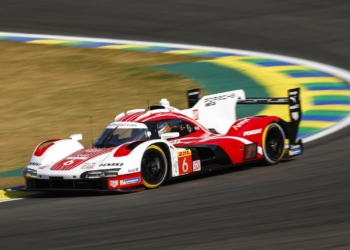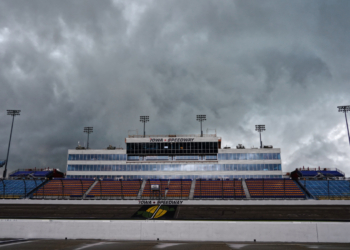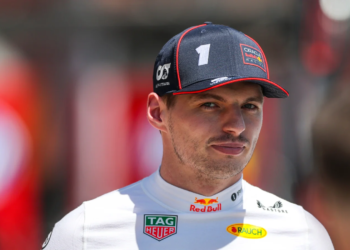Robert Kubica’s Formula 1 comeback is reaching its closing stages but, whatever the pure results say, it remains a compelling story and a tale of inspiration.
Kubica began exploring the idea of a comeback in early 2017 and a handful of tests in 2012-spec machinery courtesy of Renault convinced him that it was no longer a pipe dream but a reality that he could chase. His official test, held at the post-race running in Hungary, was borderline extraordinary, as thousands of Polish fans flocked to be present, cheering his every appearance. To even reach that stage marked an incredible feat of perseverance and dedication, and when a potential Renault avenue was closed Williams opened the door for Kubica to continue his pursuit.
Following a spate of tests Kubica was overlooked by Williams for 2018, as it recruited Sergey Sirotkin to partner Lance Stroll, but in accepting a test and reserve role he remained in Formula 1. With Stroll exiting for Racing Point, and Sirotkin’s backers unwilling to commit such substantial sums for another year, Williams turned to Kubica, whose own financial power was a facilitating factor. Nonetheless, that 2018 role proved crucial, with Kubica's hardwork and feedback well-received by the team.
.jpg)
Immediately, though, 2019 became a tale of a team in strife and a driver struggling in the circumstances. It appeared a relationship doomed for failure, and Kubica’s early frustrations were understandable, for Williams was not in a position to provide him and George Russell with a car for the first quarter of pre-season testing. When the FW42 finally arrived it was slow and unpredictable, while the lack of spare parts restricted what running could be undertaken. Having entered the season behind the curve Williams’ decline was accelerated, while Kubica was lacking the pre-season preparations and understanding that he needed. For a driver so meticulous and hard-working it was an anathema.
Williams’ worst fears were realised at the season-opening Australian Grand Prix as the FW42 was substantially adrift at the rear of the pack, prompting acceptance that 2019 was the start of a long road to recovery. Soon, though, a theme developed. Kubica was unable to match rookie team-mate Russell, and suggestions that his car was inferior – or an older spec – were soon dismissed by the squad. A new chassis was brought to Baku, which Russell wound up using after his drain incident, but when Kubica switched to it for Spain there was no upturn in his performance levels.
It was a similar story through the middle chunk of the campaign. Kubica frequently trailed Russell by half a second in qualifying as he complained of a lack of grip from the FW42, sliding with the tyres, with the concerning element being the apparent absence or ideas of how to address the problem. “I just had no grip” came the recurring complaint, as Williams and Kubica’s season slid towards oblivion. In Canada he recalled that the situation was so bad that his car was turning one way under braking. The update package in Germany was immediately compromised when a crucial piece of bodywork made a bid for freedom on his FP1 installation lap. In Hungary he could not match the heroics of team-mate Russell, who challenged for Q2 and legitimately fought with rivals. Performance-wise, Kubica has not been at the races in 2019.
.jpg)
Kubica has trailed Russell 15-0 in qualifying so far and that theme has been maintained in most grands prix, though in staying out of trouble in the frantic German Grand Prix he picked up Williams’ sole 2019 point (so far) in the wake of Alfa Romeo’s post-race penalty. It won’t change his life, nor Williams’ awful season, but it is something. Kubica put in a battling performance in Singapore and the usually self-effacing Pole was effusive.
“Okay, the result is not great which we could expect,” he conceded, “but the personal goal and personal achievement I think is big, looking at how tough this race is, looking at my condition – I suffered a small injury last Sunday so I wasn’t 100 per cent and managed [not to make] a mistake in a difficult race in such a difficult track. Knowing where I was two or three years ago – I think this is one of the biggest of my career. But it remains personal because the result didn’t pay off.”
And therein lies one of the biggest elements of Kubica’s comeback: the very fact he did it. To miss out on active competition for eight years – in which period the sport has undergone rapid changes – and still be relatively competitive is also an achievement.
“I think with the tyres, understanding the tyres, is very very difficult,” said Russell on having Kubica as a team-mate. “There’s a lot of lap time to come if you almost had the preparation through the years of this. I think one thing that’s been a big advantage [for me] is in GP3, F2, doing the testing with Mercedes, being inside the team to understand these quite frankly rubbish tyres.
“I think also driving a car that has not been nice to drive this year it’s incredibly difficult, and every driver would want to drive at 100 per cent, but quite often you go quicker to drive at 95 per cent as it’s been quite unpredictable for us. I think Robert is sort of always flat out, giving it 100 per cent, and when the car has been nice to drive he’s definitely kept me on my toes. I can’t really say how he’ll get on in other formulas but I think he’s one of the most naturally talented drivers to come through Formula 1 in the last couple of years.
“We really get along and we joke, we have fun with each other outside of the car. So people maybe don’t realise that, or see that, but we definitely have a very good relationship and that part I’ll miss.”
.jpg)
Lewis Hamilton, a month younger than Kubica and a contemporary through karting, junior categories and Formula 1, was quick to heap praise upon the outgoing Williams driver.
“What’s remarkable is the strength and determination he’s shown,” said Hamilton. “Not a lot of people can come through those circumstances and come back, make it back into the sport and deliver against others who don’t have the same situation that he’s been in. I think it’s been great to have him back. It’s definitely not the same scenario as when he was obviously in a more competitive team back in the day – but I think he’s done great this year. We need the best talent in the sport and we obviously need them to be as high up as possible creating a part of the show.”
Perhaps in a different 2019 package, or at a different team, Kubica would have fared better. We also do not know yet the long-term potential of Russell, who has been tipped in some quarters as a potential future champion; Pierre Gasly, for example, was largely trounced by Max Verstappen at Red Bull, while Antonio Giovinazzi has not cut the mustard versus Kimi Raikkonen at Alfa Romeo, yet both should be on the 2020 grid with another chance to try their hand.
If you were to look at the timesheets, the gaps and the overall results then Kubica’s season has been one of failure. But when viewed within the overall narrative this failure should still be regarded as an inspirational success.
.jpg)






